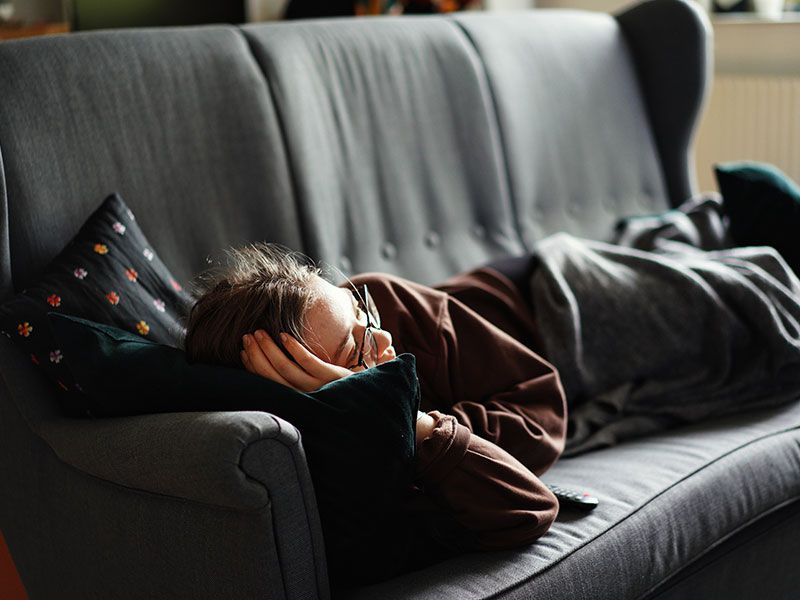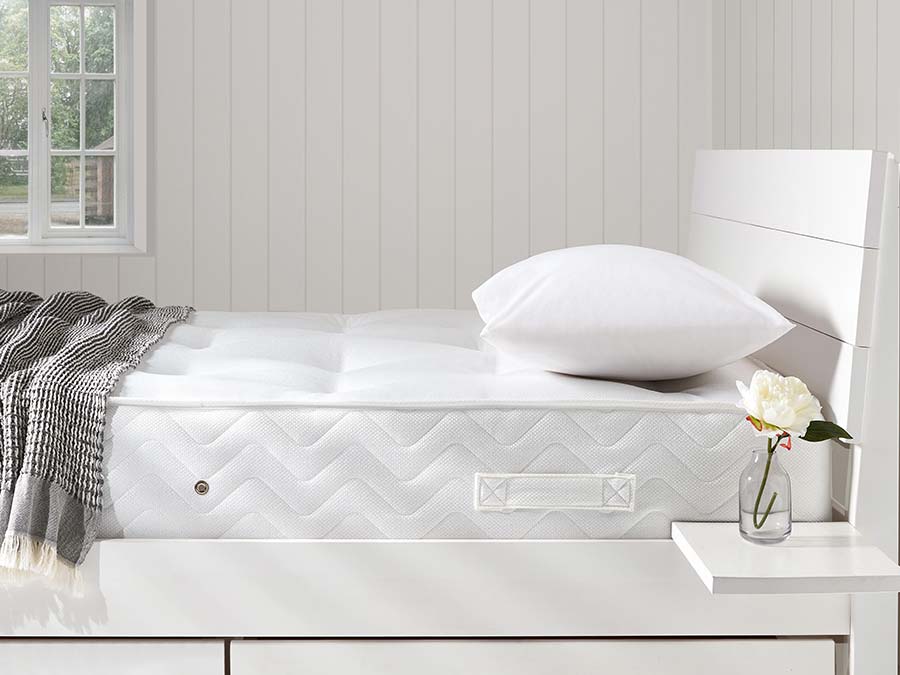
From health conditions to concentration, getting a good amount of quality sleep is key to staying healthy. So with the importance of good quality sleep clear, what can we do to achieve the best sleeping pattern possible.
In this article, we’ve compiled seven steps to improve the quality of your sleep and get you back on track for a restful night.

Going to sleep and waking up at the same time each day helps your body fall into a consistent routine which makes it easier to fall asleep and wake up each day. Before long, this routine will set your sleeping pattern making it even easier to sleep and wake at the same time each morning. It may be hard at first, but getting your body used to when to fall asleep and when to wake up carries major long-term benefits.
Make sure your bedroom is dark, quiet, and of stable temperature. Darkness prevents you from sudden distractions from things like headlights, traffic lights, and bright phone screens. Quietness prevents disturbances, which can be sudden and detrimental to your sleeping ability. Cool, temperature-regulated environments help avoid sweats or shivers, which too can keep you from drifting off.

While we can’t exactly say cheese makes you dream, we can say that a big meal before bedtime can make it difficult to fall and stay asleep. Not only can lying down after eating cause nighttime heartburn, it can also lead to insomnia. Ensure you’re leaving at least two to three hours between your last meal and bedtime to play it safe. You can also try and more regularly eat foods that contain high levels of tryptophan, a substance that can help promote sleep.
Foods high in tryptophan include chicken, beef, tofu, eggs, beans, milk and turkey. No wonder we could do with a nap after our Christmas dinner. Speaking of which…

Naps throughout the day can make it more difficult to fall asleep in the evening. It’s recommended to keep any naps throughout the day under 30 minutes to avoid it affecting your sleep during the night.
When we sleep we move through various sleep stages. If a nap is only five or so minutes, researchers say it’s too short for us to move through any sleep stages to produce any sort of benefit.
Whereas naps that last too long - over half an hour - can be enough for us to enter a deep sleep. Waking up from this deep sleep can leave you drowsy and groggy for up to an hour.
The ideal nap duration for adults is between 10 and 20 minutes. Nap early to ensure it doesn’t affect sleeping at night, set an alarm so you can still be productive and relax comfortably.
Napping is beneficial, but remember, it doesn’t replace sleeping entirely. Sleep debt is a real issue, so make sure you pay it!
Sleep debt refers to the amount of additional sleep you have missed out on due to other parts of your life. For example, if you know that you need at least 8 hours of sleep to function properly, and find yourself only sleeping 6 hours, you’ll have accrued 2 hours of sleep debt.

A healthy body promotes healthy habits. Studies suggest that getting exercise during the day can make it much easier for your body to slip into ‘rest mode’ and fall asleep. Be careful to exercise no less than two hours before bed though, as this could keep you awake and energised for longer!

Alcohol can act as a sedative, often making it easier for you to fall asleep but wake frequently without getting a true good night’s rest.
Caffeine and tobacco, on the other hand, can often have the opposite effect, keeping you awake for longer and causing a more restless sleep. Caffeine can stay in your bloodstream for up to 10 hours after it is consumed, and decaf isn’t much better since it still contains a lot of caffeine. Try limiting your intake of caffeine and nicotine throughout the day and avoid drinking coffee and drinks high in caffeine past 3pm.
Just as important as what you put in your body, the stimuli that you’re exposed to during the day can play a significant role in your ability to fall asleep. Phone screens, TVs, tablets, and even reading tablets, are all significant distractions that can keep your brain engaged and active – which itself can make it exceedingly difficult to switch off and fall asleep.

Everyone has different preferences in sleeping positions, but it’s important to ensure you are using the right kind of mattress that suits your sleeping position. When it comes to selecting a mattress that’s best for you there are a lot of complex things to consider - from your preferred sleeping position, firmness and supportiveness through to weight, height and allergies. For more information on how to best select the right mattress for you, subscribe to our newsletter where we share sleep tips, news, offers and buying guides for all things sleep.

Ensuring a sturdy bed frame is key to getting a good night's sleep. Flimsy bed frames can creak and wobble. Ever woken up after a sense of falling? Wobbly bed frames can cause small sensations that are similar, stopping you from entering a deep and regenerative sleep. A sturdy bed means you’ll feel more grounded, promoting more comfort and relaxation during sleep. Check out our range of platform beds - handmade in the UK with the highest quality materials to give you the best night sleep.
So, you’ve tried limiting distractions, eating a stable diet, and re-arranging your space for optimum comfort, and your sleep is still suffering.
If your sleep is still hindered even after following these tips, a sensible next step would be to consult a dedicated sleep specialist. Such individuals will be able to advise you on a more scientific, medical perspective and develop a plan of action to get you sleeping better.
Your consultations could end up pointing towards medical conditions preventing you from sleeping, such as insomnia, narcolepsy, restless leg syndrome, and even sleep apnoea.
Self-diagnosis on these issues is tricky and the only advice really worth following should come from a qualified, medical professional.
With all this in mind, it’s clear that a good sleeping pattern differs from person to person. Remember, not everyone needs the same amount of sleep every night, and we’re all impacted differently, as shown in our article: Britain’s Biggest Sleep Issues, Solved.
In short, a good sleeping pattern is one that leaves you feeling rested, refreshed, and ready to face the day ahead. This could mean sleeping 6 hours, or it could mean 9.
It’s estimated that we spend a third of our lives asleep. Whether it’s good or bad sleep is up to you. When it comes to investing in your own wellbeing, there’s nothing better than ensuring you are sleeping right. Check out our range of durable wooden beds and start sleeping better today.


WE VALUE YOUR PRIVACY
We use cookies to enhance your browsing experience, serve personalised ads or content, and analyse the traffic with 3rd party services. By clicking ‘Accept’, you consent to our use of cookies, visit our Privacy Policy and our Cookie Policy for more info.
Please select one of the delivery countries below or navigate to our UK website for UK delivery options.
Note: International shipping prices are charged per bed rather than per order. This is due to the bulky nature and weight of these products.